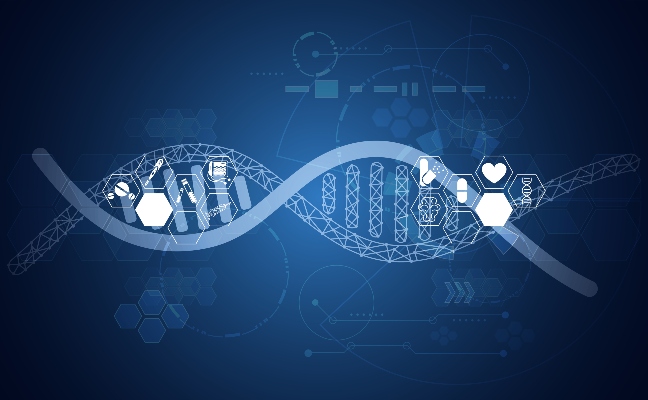Defining Precision Medicine and Evaluating Its Healthcare Impacts
Precision medicine is a change from the one-size-fits-all treatment and prevention approach traditionally used in healthcare by examining a person’s genes, behaviors, and environment.

Source: Adobe Stock
- Precision medicine — sometimes referred to as personalized or individualized medicine — is an emerging disease prevention and treatment approach that accounts for an individual’s genetic and environmental variability. Although the concept of precision medicine has been a part of numerous healthcare applications for many years, the term precision medicine is relatively new.
This approach enables scientists to more accurately predict which treatment–prevention strategies will work best in certain groups of people for a particular disease. While precision medicine has applications in several fields of medicine, such as cancer research and inherited diseases, its role in day-to-day healthcare is limited.
Precision medicine can improve patient outcomes and lower the associated cost of trial-and-error healthcare through pharmacogenomics, the study of how genes affect an individual’s response to medications. But the scientific community may be several years away from collecting and distributing the abundance of information necessary.
A vast amount of data is required to develop the algorithms necessary to predict and treat diseases based on a subpopulation-specific set of characteristics.
Precision medicine hinges on growing a deeper understanding of the human genome and overcoming the limitations of technology, which are beginning to be removed with the advancements in big data computing and storage. Educating healthcare consumers about its value is essential for advancing patient empowerment and individualized care.
Precision Medicine Initiative
In 2015, former President Barack Obama announced the launch of the Precision Medicine Initiative, a long-term, wide-scale research program geared toward revolutionizing personalized medicine by generating enough scientific evidence to move into clinical practice. Since then, researchers from various fields have been working collaboratively to break through this new frontier of medicine.
The Precision Medicine Initiative invested $215 million into the 2016 budget of the National Institutes of Health, which fueled the All of Us Research Program. This program invites over 1 million American participants to volunteer their genetic data, biological samples, and other health information to build a historical, diverse health database. Researchers use this wealth of data to predict disease risk better, understand disease mechanisms, and improve diagnosis and treatment strategies by studying a wide range of conditions.
The discovery of the human genome sequence, improved technology and biomedical analysis, and new, extensive dataset tools have also enabled vast precision medicine research efforts.
Precision Medicine and Current Healthcare Impacts
Around 70 years ago, when scientists had a limited understanding of how genes influence cancer, some researchers wondered if genetic alterations could cause cancer. Because precision medicine pairs genetic information with environmental factors and lifestyles to better understand, prevent, and treat diseases, genetically alike cancers are treated similarly with this targeted approach.
For example, cancer patients usually receive molecular and genetic profiling to detect mutations, subsequently used to determine the class of drugs to prescribe. To treat chronic myelogenous leukemia (CML), doctors use imatinib (Gleevec) only when the cancer cells have a particular genetic makeup. This landmark drug has dramatically improved patient outcomes for individuals with the BCR-ABL fusion protein present in blood cells, which results from a shortened chromosome.
Animal studies show that epigenetic alterations — a heritable change in the chemical structure of DNA that results in a change in gene expression but does affect the DNA sequence — can modulate the stress response. And because of this, post-traumatic stress disorder is being extensively studied in soldiers returning from combat in a push to advance precision medicine in mental healthcare.
Additionally, tissue engineering and regenerative medicine are fields that can make significant contributions to the development of precision medicine through organs-on-a-chip technology and personalized stem cell therapies, respectively.
Organs-on-a-Chip Technology
An organ-on-a-chip (OOC) is a microfluidic cell culture, integrated circuit (chip) that mimics an entire organ or organ system’s behaviors, mechanics, and physiological response. Scientists can modify an OOC to model an individual’s physiology by incorporating blood samples, human tissues, and induced pluripotent stem cells.
Because this technology can customize the cell’s culture microenvironment based on a person’s health data, this level of personalization affords the opportunity to assess person-specific drug efficacy and tailors disease prevention approaches.
Personalized Stem Cell Therapies
Advancements in precision medicine with stem cell therapies have numerous essential benefits for the future of personalized healthcare. Researchers use stem cells to drive effective therapeutic and diagnostic development in various diseases such as multiple sclerosis, Alzheimer’s, chronic renal failure, and several different cancers.
As a result, the number of clinical trials and regulatory approvals for cell and gene therapies is expected to increase over the years. By 2025, the FDA expects to approve 10–20 cell and gene therapy products every year, while other sources suggest half a million patients in the United States will have been treated with 40–60 approved gene or cell therapy products.
In a world of customized healthcare, precision medicine research efforts have the potential to uncover more insights into the complex interplay between genetic predispositions and diseases and could dramatically accelerate the development of highly targeted therapies for some of the most devastating diseases affecting humans today.
Most importantly, advancements in precision medicine could drastically improve patient outcomes, drive down healthcare costs, mitigate physician burnout, and provide value-based care.
